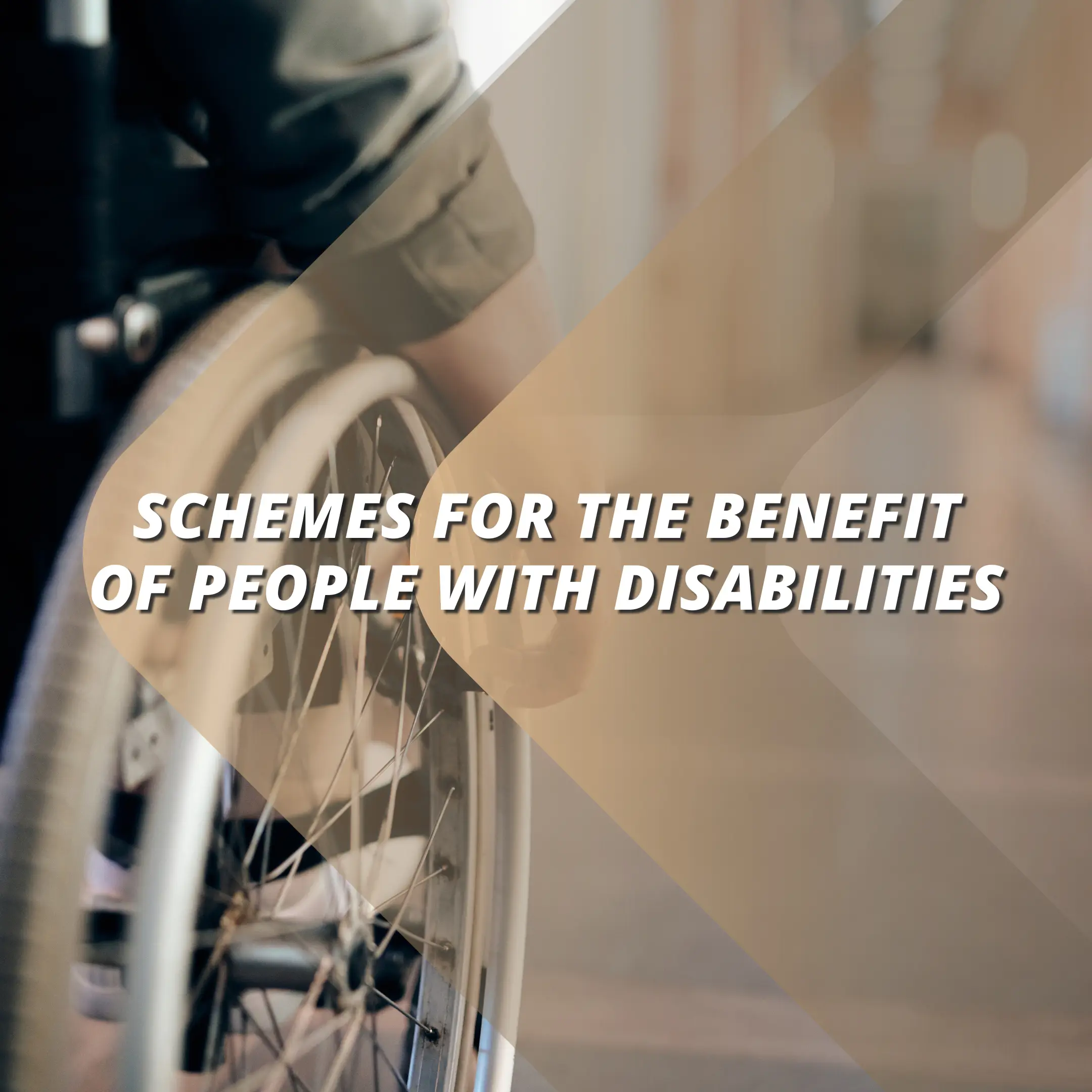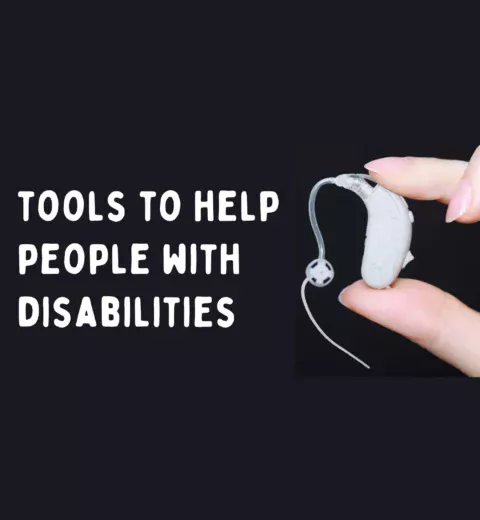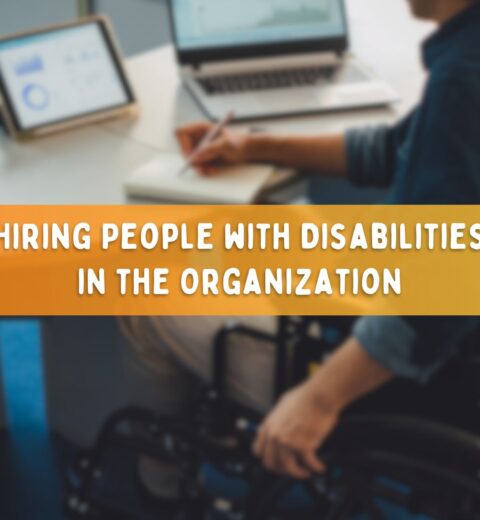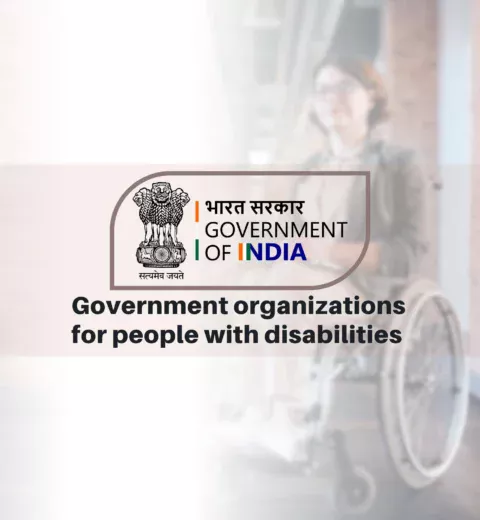A comprehensive guide on Central Government Schemes for the benefit of people with disabilities in India serves as a valuable resource for understanding and accessing the various support mechanisms and initiatives provided by the government. These schemes, often managed by the Department of Empowerment of Persons with Disabilities under the Ministry of Social Justice and Empowerment, encompass a wide range of areas such as education, employment, healthcare, and accessibility. The guide outlines the eligibility criteria, application procedures, and benefits offered under each scheme, providing individuals with disabilities, their families, and caregivers with crucial information to navigate the available resources effectively. By disseminating knowledge about these schemes, the guide contributes to empowering individuals with disabilities, facilitating their access to essential services, and promoting greater inclusivity and equal opportunities in society. The Central Government of India has initiated various schemes and programs to benefit people with disabilities. While the list may change over time, here are some of the central government schemes for the benefit of people with disabilities in India:
1. National Social Assistance Programme (NSAP):
The National Social Assistance Programme (NSAP) is a significant initiative by the Government of India aimed at providing financial assistance to vulnerable and marginalized groups, including persons with disabilities. Launched by the Ministry of Rural Development, NSAP comprises various schemes such as the Indira Gandhi National Disability Pension Scheme (IGNDPS), which specifically caters to individuals with disabilities. The program seeks to address the economic and social vulnerabilities of these groups by offering monthly financial assistance to enhance their standard of living. The NSAP plays a pivotal role in promoting social security, poverty alleviation, and inclusive development by ensuring that financial support reaches those who are most in need, including persons with disabilities who may face additional economic challenges. NSAP includes financial assistance for people with disabilities living below the poverty line.
2. Assistance to Disabled Persons for Purchase/Fitting of Aids and Appliances (ADIP):
The Assistance to Disabled Persons for Purchase/Fitting of Aids and Appliances (ADIP) scheme is a crucial component of the Indian government’s commitment to supporting persons with disabilities. Operated under the Department of Empowerment of Persons with Disabilities, Ministry of Social Justice and Empowerment, ADIP aims to enhance the independence and mobility of individuals with disabilities by providing financial assistance for the purchase and fitting of various aids and appliances. These aids include devices like wheelchairs, hearing aids, prosthetic limbs, and other assistive technologies. By facilitating access to these essential tools, the ADIP scheme not only improves the quality of life for persons with disabilities but also promotes their active participation in various aspects of daily life, education, and employment, contributing to a more inclusive and accessible society. This scheme provides financial assistance to purchase aids and appliances to enhance the functional capacities of persons with disabilities.
3. Deendayal Disabled Rehabilitation Scheme (DDRS):
The Deendayal Disabled Rehabilitation Scheme (DDRS) is a vital initiative implemented by the Government of India under the Ministry of Social Justice and Empowerment to address the rehabilitation needs of persons with disabilities. This comprehensive scheme encompasses various components, including community-based rehabilitation, special education, skill development, and employment opportunities, aiming to empower individuals with disabilities for enhanced social integration. DDRS focuses on enhancing the functional independence of persons with disabilities, providing them with the necessary support systems to lead a dignified and self-reliant life. By promoting inclusivity, skill-building, and community participation, the scheme contributes significantly to the overall rehabilitation and socio-economic empowerment of persons with disabilities across diverse domains and age groups. DDRS aims to create an enabling environment to ensure equal opportunities, equity, social justice, and empowerment of people with disabilities.
4. Accessible India Campaign (Sugamya Bharat Abhiyan):
The Accessible India Campaign, also known as Sugamya Bharat Abhiyan, is a flagship program launched by the Government of India with the primary objective of creating a universally accessible and barrier-free environment for persons with disabilities. Spearheaded by the Department of Empowerment of Persons with Disabilities under the Ministry of Social Justice and Empowerment, this nationwide initiative focuses on making public spaces, transportation, and information and communication technologies more inclusive. The campaign involves comprehensive accessibility audits, retrofitting of infrastructure, and the formulation of guidelines to ensure compliance with accessibility standards. Sugamya Bharat Abhiyan aims to break down physical and informational barriers, fostering greater participation and independence for persons with disabilities in various facets of life, ultimately working towards building a more accessible and equitable society for all. This initiative focuses on making public infrastructure and information accessible for people with disabilities.
5. Scholarship Schemes:
In India, several scholarship schemes have been instituted to support students with disabilities in their pursuit of education. These programs are designed to alleviate financial barriers and promote inclusive learning opportunities. Initiatives like the National Scholarship for Persons with Disabilities (NSPwD) and the Trust Fund Scholarship for Students with Disabilities offer financial assistance for tuition fees, maintenance allowances, and other educational expenses. These scholarships aim to empower students with disabilities by enabling them to access quality education, pursue higher studies, and develop the skills necessary for a successful future. By providing financial support, these schemes contribute to creating a more inclusive education system that recognizes and accommodates the diverse needs of students with disabilities, fostering their academic growth and personal development. Various scholarships are available for students with disabilities, including the National Scholarship for Persons with Disabilities.
6. Rajiv Gandhi National Fellowship for Students with Disabilities:
The Rajiv Gandhi National Fellowship for Students with Disabilities is a significant scholarship program in India, established to provide financial support to students with disabilities pursuing higher education. Administered by the University Grants Commission (UGC), this fellowship aims to empower individuals with disabilities by offering opportunities for advanced studies and research. The scheme covers a wide range of disciplines and provides financial assistance for tuition fees, maintenance allowances, and other incidental expenses. By facilitating access to higher education, the Rajiv Gandhi National Fellowship plays a crucial role in creating an inclusive academic environment, promoting diversity, and ensuring that students with disabilities have the resources and support necessary to excel in their chosen fields of study. This scheme provides financial assistance for pursuing M.Phil and Ph.D. degrees to students with disabilities.
7. Scheme for Implementation of Persons with Disabilities Act (SIPDA):
The Scheme for Implementation of Persons with Disabilities Act (SIPDA) is a strategic initiative in India aimed at ensuring effective implementation of the Persons with Disabilities (Equal Opportunities, Protection of Rights, and Full Participation) Act. Launched under the aegis of the Ministry of Social Justice and Empowerment, SIPDA focuses on addressing the diverse needs of persons with disabilities by promoting inclusivity, accessibility, and protection of their rights. The scheme encompasses a range of measures, including awareness campaigns, skill development programs, and the creation of barrier-free infrastructure to facilitate the integration of persons with disabilities into mainstream society. SIPDA plays a pivotal role in fostering a supportive environment that respects the dignity and rights of individuals with disabilities, striving to create a more inclusive and equitable society as envisioned by the legislative framework of the Disabilities Act. SIPDA aims to provide better facilities for persons with disabilities by ensuring accessibility in government buildings, educational institutions, and public transport.
8. Sugamya Pustakalaya:
Sugamya Pustakalaya, meaning “Accessible Library,” is an innovative initiative by the Ministry of Social Justice and Empowerment in India that aims to make digital books accessible to individuals with print disabilities. Launched under the Accessible India Campaign, Sugamya Pustakalaya leverages technology to provide a vast collection of accessible books, including textbooks, literature, and reference materials, in diverse formats such as audiobooks, e-books, and Braille. The platform enhances the reading experience for persons with visual or print impairments, ensuring that they have equitable access to a wealth of information and educational resources. Sugamya Pustakalaya plays a crucial role in promoting inclusive education and supporting lifelong learning for individuals with disabilities, contributing to the vision of a more accessible and knowledge-inclusive society in India. An online library for people with print disabilities offering a collection of accessible books.
9. Accessible E-textbooks for students with visual impairment:
Accessible E-textbooks for students with visual impairment represent a transformative approach to inclusive education by leveraging digital technology. These specialized textbooks are designed to cater to the unique needs of students with visual challenges, offering content in electronic formats that are compatible with screen readers, Braille displays, and other assistive technologies. The accessibility features may include adjustable font sizes, customizable color contrasts, and compatibility with text-to-speech software. By providing E-textbooks tailored for students with visual impairment, educational institutions and publishers contribute to breaking down barriers to learning, enabling these students to access the same curriculum and educational materials as their peers. This approach fosters independence, empowers students to actively participate in academic pursuits, and promotes an inclusive learning environment where every student, regardless of visual abilities, can thrive. Provides accessible e-textbooks for students with visual impairments.
10. Aids and Appliances:
“Aids and Appliances” refer to specialized devices designed to enhance the independence and quality of life for individuals with disabilities. These tools encompass a wide range of assistive technologies tailored to address various impairments, including mobility aids like wheelchairs and walkers, hearing aids, communication devices, and visual aids such as magnifiers and screen readers. Aids and appliances play a crucial role in mitigating the challenges faced by people with disabilities, promoting accessibility, and facilitating their active participation in daily activities, education, and employment. Whether it’s a braille display for someone with visual impairment or a customized orthopedic device for improved mobility, these aids empower individuals to navigate the world more comfortably, fostering inclusivity and supporting their overall well-being. Several central government schemes provide financial assistance for aids and appliances like hearing aids, wheelchairs, and Braille devices.
11. Mukhyamantri Yuva Swavlamban Yojana (MYSY):
Mukhyamantri Yuva Swavlamban Yojana (MYSY) is a pioneering initiative by the government of Gujarat, India, aimed at empowering young individuals with disabilities through financial assistance for education. Launched under the leadership of the Chief Minister, this scheme provides scholarships and support for students with disabilities pursuing higher education, including professional courses. MYSY encompasses a range of benefits, covering tuition fees, examination fees, and other educational expenses. The program is designed to facilitate inclusive education, reduce financial barriers, and promote skill development among the youth with disabilities, fostering their academic and career growth. MYSY stands as a testament to the commitment of the Gujarat government in creating opportunities for educational advancement and self-reliance for young individuals with disabilities in the state. This is a state-level scheme in Gujarat that provides financial assistance to students with disabilities for higher education.
12. Umbrella Scheme for Development of Scheduled Castes:
The Umbrella Scheme for Development of Scheduled Castes (SCs) is a comprehensive initiative implemented by the government of India to uplift and empower individuals belonging to Scheduled Castes, historically marginalized communities facing socio-economic challenges. This overarching scheme encompasses various sub-components and programs designed to address the multifaceted needs of SCs, including education, skill development, economic empowerment, and social inclusion. Through measures such as scholarships, training programs, and financial support for entrepreneurship, the scheme aims to bridge socio-economic gaps and create opportunities for the holistic development of Scheduled Caste communities. By fostering inclusivity and addressing disparities, the Umbrella Scheme contributes to the broader goal of ensuring equal opportunities and improving the socio-economic status of Scheduled Castes across the country. While not exclusively for people with disabilities, this scheme includes financial assistance for SC students with disabilities.
Please note that the availability and specifics of these schemes may change over time, and each state in India may have its own additional schemes and programs for people with disabilities. It’s advisable to visit the official websites of the relevant government departments or contact them directly for the most up-to-date information on these schemes and their eligibility criteria.




